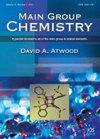Comparison of Electro-Fenton and Photoelectro-Fenton for removal of Acrylonitrile Butadiene Styrene (ABS) from petrochemical wastewater
IF 1
4区 化学
Q3 CHEMISTRY, MULTIDISCIPLINARY
引用次数: 0
Abstract
The purpose of this study was the evaluation the Electro-Fenton (EF) and Photo Elecro-Fennton (PEF) efficiencies to remove of some pollution indicators from effluents of Acrylonitrile Butadiene Styrene (ABS) petrochemical industries affected by the operational parameters such as operation time, pH, current density, and concentration of H2O2. The EF and PEF reactors were made and a batch study was performed to optimize the operational parameters. The optimum operating conditions were determined as pH 5, reaction time 60 min, H2O2 concentration 50 mmol/lit and current density 20 mA/cm2 for EF process and pH 5, operation time 30 min, H2O2 concentration 25 mmol/lit, current density of 20 mA/cm2 for PEF process. The highest removal efficiencies of COD (chemical oxygen demand), turbidity, total kejaldahl nitrogen (TKN) and total suspended solids (TSS) by EF and PEF processes under optimal conditions were obtained 86.7, 88.1, 67.9 and 64.1% for EF and 92.4, 93.7, 70.5 and 67.2% for PEF process, respectively. The PEF process resulted in higher removal efficiencies than that of the EF process to remove COD and TKN especially. Also, the amount of energy consumption for EF and PEF were obtained 10.1 and 9.3 kW h/m3, respectively. The PEF process was more capable to remove the pollutants from wastewater, than the EF process in a shorter time and with a lower H2O2 concentration due to the presence of UV radiation, which causes the photocatalytic decomposition of organic pollutants.电fenton与光电fenton对石化废水中丙烯腈-丁二烯-苯乙烯(ABS)的去除效果比较
本研究的目的是评价电fenton (EF)和光电fenton (PEF)去除丙烯腈-丁二烯-苯乙烯(ABS)工业废水中一些污染指标的效率,这些指标受操作时间、pH、电流密度和H2O2浓度等操作参数的影响。制作了EF和PEF反应器,并对其运行参数进行了批量优化研究。确定最佳操作条件为:EF工艺pH 5,反应时间60 min, H2O2浓度50 mmol/lit,电流密度20 mA/cm2, pH 5,操作时间30 min, H2O2浓度25 mmol/lit, PEF工艺电流密度20 mA/cm2。在最佳条件下,EF法和PEF法对COD、浊度、总凯氏氮(TKN)和总悬浮物(TSS)的去除率分别为86.7、88.1、67.9和64.1%,PEF法为92.4、93.7、70.5和67.2%。PEF工艺对COD和TKN的去除效果优于EF工艺。此外,EF和PEF的能耗分别为10.1和9.3 kW h/m3。PEF工艺比EF工艺在更短的时间内去除废水中的污染物,并且由于存在紫外线辐射,H2O2浓度较低,导致有机污染物的光催化分解。
本文章由计算机程序翻译,如有差异,请以英文原文为准。
求助全文
约1分钟内获得全文
求助全文
来源期刊

Main Group Chemistry
化学-化学综合
CiteScore
2.00
自引率
26.70%
发文量
65
审稿时长
>12 weeks
期刊介绍:
Main Group Chemistry is intended to be a primary resource for all chemistry, engineering, biological, and materials researchers in both academia and in industry with an interest in the elements from the groups 1, 2, 12–18, lanthanides and actinides. The journal is committed to maintaining a high standard for its publications. This will be ensured by a rigorous peer-review process with most articles being reviewed by at least one editorial board member. Additionally, all manuscripts will be proofread and corrected by a dedicated copy editor located at the University of Kentucky.
 求助内容:
求助内容: 应助结果提醒方式:
应助结果提醒方式:


